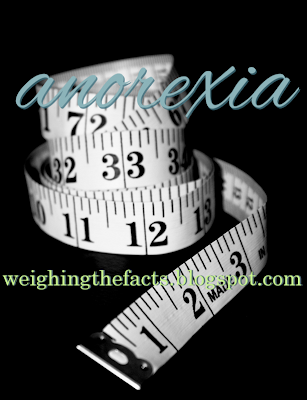
"This is not my body. This can't be it, this soft, round, jiggly blob ... When I look in the mirror, that is what I think: No, please, this can't be it! I have struggled with bulimia for 8 years. My weight is normal and healthy, but it is too much. There's too much excess, too much softness and flab." Age 24
"Sometimes I have peace talks with my self-esteem. I say, “Hey, I’m not ugly and my looks don’t determine who I am.” And my self-esteem agrees and for awhile all is quiet on the home front. Then it comes back. ... The only person who can even get anywhere near winning the War on Self is self." Age 19
"I hate my body. I don't want to do so for the rest of my life. I am destroying what little I have left of my own inner spirit." Age 36
"Number of minutes of every hour I spend hating myself for how much I weigh: 40 ... Over the years, that is a lot of time devoted to...futility." Age 46
These are the voices of women who have participated in the Body Image Project. They are the voices of mothers, wives, daughters, sisters, and friends. They are honest, heartfelt expressions of women's struggles, fears, acceptance, and wisdom.
"We are all born perfect. In our perfection we must learn to honor our SELVES and accept that those who attempt to harm our selves are not worthy of our time or love. Love is the answer to a life long acceptance of oneself ..." Age 43
"I have gone through my entire life hating my body. No more. Now, I don’t just accept the body I was given, I love the body I was given. This body created and birthed three beautiful children ... My body created the hearts, minds and bodies of the most precious things in my life. I see myself in my children’s faces and that makes me feel beautiful." Age 35
In our society a very loud message is being given to women. They are under a great deal of pressure to be beautiful. The unrealistic expectations of beauty and perfection are assaulting the self-esteem of women and distorting the definition of self-worth. The growing problem with negative body image affects all ages and is increasingly evident in young girls.
The Body Image Project is shining a light, providing an opportunity for women to anonymously express their views and feelings concerning their bodies. The accounts are candid, giving the reader insight into the struggles and triumphs of women of varying ages.
The Body Image Project asks, "when you look in the mirror, what do you see? Do you embrace your physical appearance, or yearn for change? Do you accept your physical differences or take extreme measures in an attempt to change your body? How far are you willing to go to feel better about yourself? Are you happy?"
Want to Share?
"The Body Image Project is an online project searching for women and girls of all ages to share their individual experiences and feelings about their own body image perceptions. The goal of the project is to have women and girls take that brave step to share their stories, break the hold these perceptions have and ultimately reveal to those who share and to those who view this site - you are not alone."
You can read more and/or share your body image story here.
If you have a moment please participate in the anonymous body image poll in the upper right hand corner of this blog. Thank You.
See "Tools" in sidebar for self-assessment tests
Special thanks to BamaGal for bringing The Body Image Project to my attention.
Source:http://thebodyimageproject.blogspot.com/
picture: http://www.smccd.net/accounts/mecklerd/MUS202/4difficulties.htm
Christoffer Wilhelm Eckersberg Woman in Front of a Mirror, 1841


 4
comments
4
comments
































